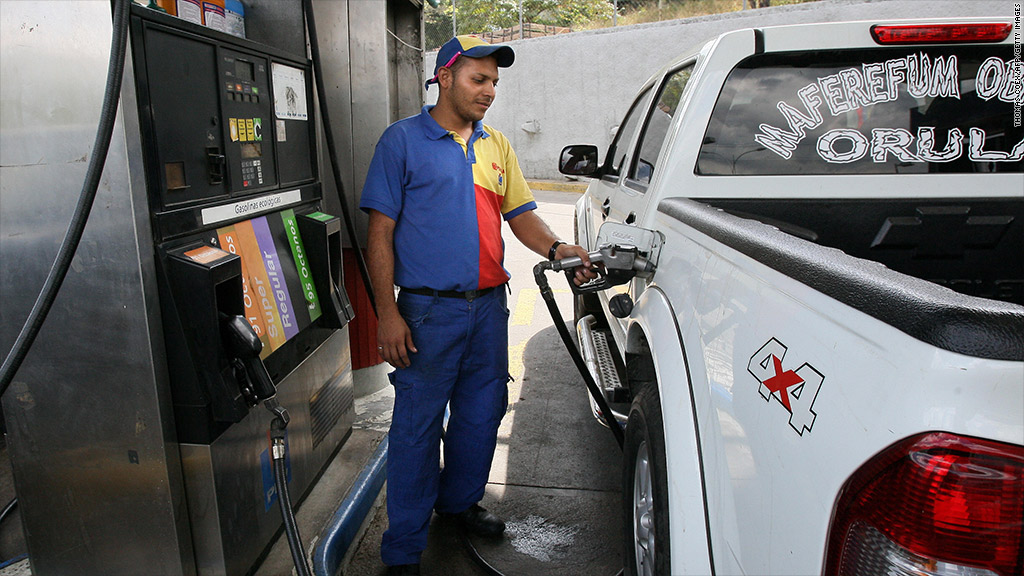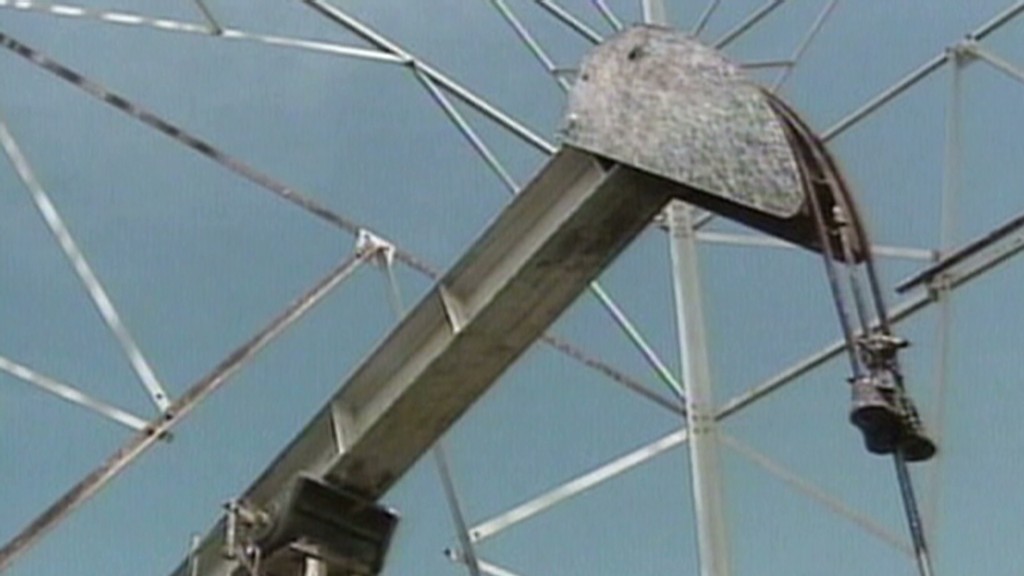
There are lots of unknowns surrounding Hugo Chavez's successor in Venezuela, but one thing is fairly certain: the price of gasoline will remain at just a few cents a gallon.
Thanks to generous subsidies, the Venezuelan people pay an absurdly low price for gas. The average price for a gallon of regular at the end of January was four U.S. cents, according to the research firm Airinc.
That's right: One. Two. Three. Four.
Pennies.
There's a common belief in Venezuela -- and in other oil-exporting nations -- that oil is a national resource that citizens have every right to use cheaply.
The International Energy Agency, which represents oil-importing countries, unsurprisingly takes the other side of the argument. It says these subsidies encourage "wasteful consumption," which in turn contributes to higher oil prices worldwide.
Related: Chavez's death won't spur new Venezuela oil drilling
IEA says such subsidies total over $200 billion a year worldwide. It has a handy map showing where they are most lavish, and Venezuela tops the list.
But the subsidies are also becoming problematic for Venezuela itself.
As the country grows, its citizens are using more and more gasoline. Venezuela must now import about a quarter of the gas it uses -- and most of these imports come from the United States.
"How do you import gasoline at $100 a barrel and sell it at $5 a barrel?" said Luisa Palacios, managing director for Latin America at the Medley Investment Group. "That's a huge loss, and it has to be absorbed by the state oil company."
Yet cutting the subsidies will be hard -- which means they're probably not going away any time soon.
The last time the government tried it, in 1989, there were riots. The military was called. The upheaval actually helped set the stage for Chavez's first coup. It was unsuccessful, but the president at the time was eventually forced from office before he finished his term.
"There's this idea that if you raise gas prices, people will go to the streets," Palacios said. "It's stayed in the psyche of Venezuelans as something you just can't do."

Palacios doesn't anticipate any attempt to raise gas prices, at least not before the conclusion of new presidential elections in April and local elections this summer. Even after then, she said she'd be "pleasantly surprised" if the government were to boost prices.
Other analysts have similar views.
"It's a political killer," said Daniel Kerner, a Latin American analyst at the Eurasia Group. "Subsidies will not go away."


